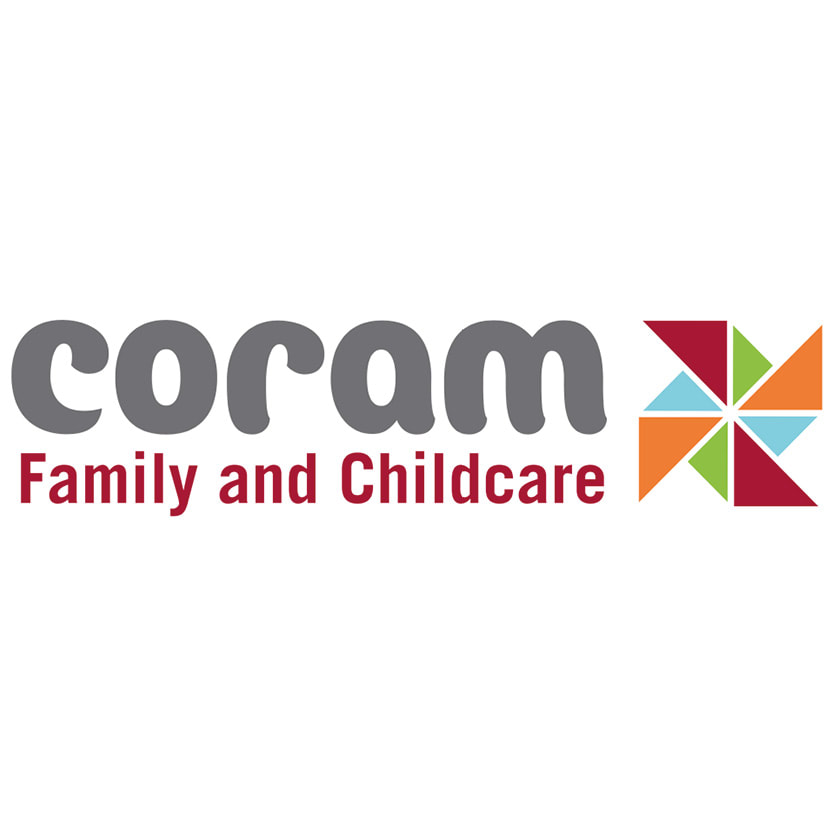Finding Parent Directors
Extract from Coram Family and Childcare Trust report
Getting the right group of Parent Directors is crucial for developing and setting up your nursery. Directors have joint responsibility, working alongside the nursery manager, to make sure the nursery works well and delivers high quality care. In order to fulfil the parent-led ethos of the community, it is helpful to have a group who are representative of your local area and are well connected with other parents to be able to understand what they will want and need. The role can also include considerable work and responsibility and Parent Directors need to be willing to take this on. Registering as a CIO will mean directors are protected from having liability for any costs or debts from the nursery.
There is more information about the Parent Director role at the bottom of this page.
How many Directors do you need? Many grant funders require a minimum of three Directors in order to be eligible to apply for funding. There will be a lot of work involved in getting your nursery set up and the more directors that are in post, the more people this work can be shared between. It is also likely that parent directors may need to take periods of time when they are less active, for example, if they have another child, and so it is useful to have a big enough group to cover these periods. However, a bigger group can slow down decision making, make it harder to find times when all the parent directors are able to meet and slow down Ofsted registration as all Parent Directors need to complete various checks. Putting in place structures for a wider group of parents to be actively involved in the work of your nursery with a smaller group of parent directors can be one way to overcome some of these issues.
How will you invite parents to become a Director? For the Friendly Families Nursery, we started with an excellent nursery site, but without a group of parents. This meant that we needed to invest considerable time in connecting with the local community in order to make sure that the project was community led and to recruit Parent Directors. We used a range of methods to engage with families and build relationships including door knocking, one to one’s and stay and play sessions. There is more information about these approaches on other pages of the website. These different routes proved very effective at reaching a large number of parents in the local area. It is important to model the ‘community owned’ approach when running these events and encourage a wide group of parents to take on different roles, such as letting people know about the sessions, running an activity for the children or preparing snacks. The sessions also provide a really valuable time for you to start hearing from local parents about what they want from childcare to start shaping how the nursery will be structured and for you to identify which parents are keen to take action on childcare.
All these activities were supported by a conversation guide and FAQ document so that it was possible to give parents clear information about the plans for the nursery and how they could be involved. It is also good to display simple posters and banners in the local area and at places that parents go, although best to avoid including dates of events on these given that they will quickly go out of date. Your engagement activities should be aimed at parents with younger children who may use the nursery in future. Parents are less likely to move their children from one nursery to another and so it is easier to engage them before their children start nursery. It can also mean that they stay involved in the running of the nursery for a longer period of time which is useful particularly during the set up period.
Is the Director role open, accessible and manageable for local parents? When recruiting your parent directors, it is necessary to strike a careful balance between making the role accessible and appealing to a wide range of local parents while also being honest about the work and responsibility involved. We produced a short outline for potential Parent Directors, describing what is involved in the role as well as some of the things that might make them want to take part, from personal development to changing their community. It is important to also be aware of the Charity Commission and Ofsted guidance on who is eligible to be a charity trustee or childcare director as this may exclude some people. Parent Directors will all need to be named as part of the Ofsted registration process and will be checked against social services databases. One will also need to be the ‘nominated person’, or lead contact for Ofsted, including leading the registration visit.
What other roles can parents play if they don’t want to become a Director? The work to engage with parents took a considerable amount of time. Although parents were keen to be involved in setting up the nursery, not all were willing to sign up as directors. The role seemed intimidating, particularly for parents who were not from a professional background. After around 6 months we had a group of parents who wanted to become directors as well as a wider group of parents who were committed to supporting the set up of the nursery. We took the decision to delay assigning Parent Directors initially and instead parents began to lead on different areas of the work. This enabled them to become more familiar in the work and for some built their confidence to take on the director role. While this slowed down the process of registering the nursery as a charity, it felt necessary to do this in order to recruit a group of Parent Directors who reflected the community.
How will decisions be made in a clear and accountable way? It is important to agree the decision making process and how parents who are not Parent Directors will inform and steer key decisions to make sure that your nursery meets local needs. We found it useful for different Parent Directors to lead on different areas, such as recruitment or Ofsted registration, and they could then set up working groups with other parents who were keen to be involved. We often struggled to find times when Parent Directors could come together as a group and at times this slowed decision making. If it is proving difficult to find times when parents are able to meet together, it is worth looking at other ways to share information and make decisions. We found Whatsapp groups particularly useful for quick and convenient information sharing and discussion. We also did occasional conference calls in the evening after children had gone to bed as this tended to be a time when parents were more likely to be available. With Zoom more available it is likely that online meetings will continue although it is important to be aware of the barriers some face in getting online.
Summary
Embedding local leadership in your organisation is vital to developing the parent-led approach. Not all parents will feel confident about taking on the role of a Director but there are other ways that you can ensure parents are participating and helping shape the development of the nursery.
There is more information about the Parent Director role at the bottom of this page.
How many Directors do you need? Many grant funders require a minimum of three Directors in order to be eligible to apply for funding. There will be a lot of work involved in getting your nursery set up and the more directors that are in post, the more people this work can be shared between. It is also likely that parent directors may need to take periods of time when they are less active, for example, if they have another child, and so it is useful to have a big enough group to cover these periods. However, a bigger group can slow down decision making, make it harder to find times when all the parent directors are able to meet and slow down Ofsted registration as all Parent Directors need to complete various checks. Putting in place structures for a wider group of parents to be actively involved in the work of your nursery with a smaller group of parent directors can be one way to overcome some of these issues.
How will you invite parents to become a Director? For the Friendly Families Nursery, we started with an excellent nursery site, but without a group of parents. This meant that we needed to invest considerable time in connecting with the local community in order to make sure that the project was community led and to recruit Parent Directors. We used a range of methods to engage with families and build relationships including door knocking, one to one’s and stay and play sessions. There is more information about these approaches on other pages of the website. These different routes proved very effective at reaching a large number of parents in the local area. It is important to model the ‘community owned’ approach when running these events and encourage a wide group of parents to take on different roles, such as letting people know about the sessions, running an activity for the children or preparing snacks. The sessions also provide a really valuable time for you to start hearing from local parents about what they want from childcare to start shaping how the nursery will be structured and for you to identify which parents are keen to take action on childcare.
All these activities were supported by a conversation guide and FAQ document so that it was possible to give parents clear information about the plans for the nursery and how they could be involved. It is also good to display simple posters and banners in the local area and at places that parents go, although best to avoid including dates of events on these given that they will quickly go out of date. Your engagement activities should be aimed at parents with younger children who may use the nursery in future. Parents are less likely to move their children from one nursery to another and so it is easier to engage them before their children start nursery. It can also mean that they stay involved in the running of the nursery for a longer period of time which is useful particularly during the set up period.
Is the Director role open, accessible and manageable for local parents? When recruiting your parent directors, it is necessary to strike a careful balance between making the role accessible and appealing to a wide range of local parents while also being honest about the work and responsibility involved. We produced a short outline for potential Parent Directors, describing what is involved in the role as well as some of the things that might make them want to take part, from personal development to changing their community. It is important to also be aware of the Charity Commission and Ofsted guidance on who is eligible to be a charity trustee or childcare director as this may exclude some people. Parent Directors will all need to be named as part of the Ofsted registration process and will be checked against social services databases. One will also need to be the ‘nominated person’, or lead contact for Ofsted, including leading the registration visit.
What other roles can parents play if they don’t want to become a Director? The work to engage with parents took a considerable amount of time. Although parents were keen to be involved in setting up the nursery, not all were willing to sign up as directors. The role seemed intimidating, particularly for parents who were not from a professional background. After around 6 months we had a group of parents who wanted to become directors as well as a wider group of parents who were committed to supporting the set up of the nursery. We took the decision to delay assigning Parent Directors initially and instead parents began to lead on different areas of the work. This enabled them to become more familiar in the work and for some built their confidence to take on the director role. While this slowed down the process of registering the nursery as a charity, it felt necessary to do this in order to recruit a group of Parent Directors who reflected the community.
How will decisions be made in a clear and accountable way? It is important to agree the decision making process and how parents who are not Parent Directors will inform and steer key decisions to make sure that your nursery meets local needs. We found it useful for different Parent Directors to lead on different areas, such as recruitment or Ofsted registration, and they could then set up working groups with other parents who were keen to be involved. We often struggled to find times when Parent Directors could come together as a group and at times this slowed decision making. If it is proving difficult to find times when parents are able to meet together, it is worth looking at other ways to share information and make decisions. We found Whatsapp groups particularly useful for quick and convenient information sharing and discussion. We also did occasional conference calls in the evening after children had gone to bed as this tended to be a time when parents were more likely to be available. With Zoom more available it is likely that online meetings will continue although it is important to be aware of the barriers some face in getting online.
Summary
Embedding local leadership in your organisation is vital to developing the parent-led approach. Not all parents will feel confident about taking on the role of a Director but there are other ways that you can ensure parents are participating and helping shape the development of the nursery.






